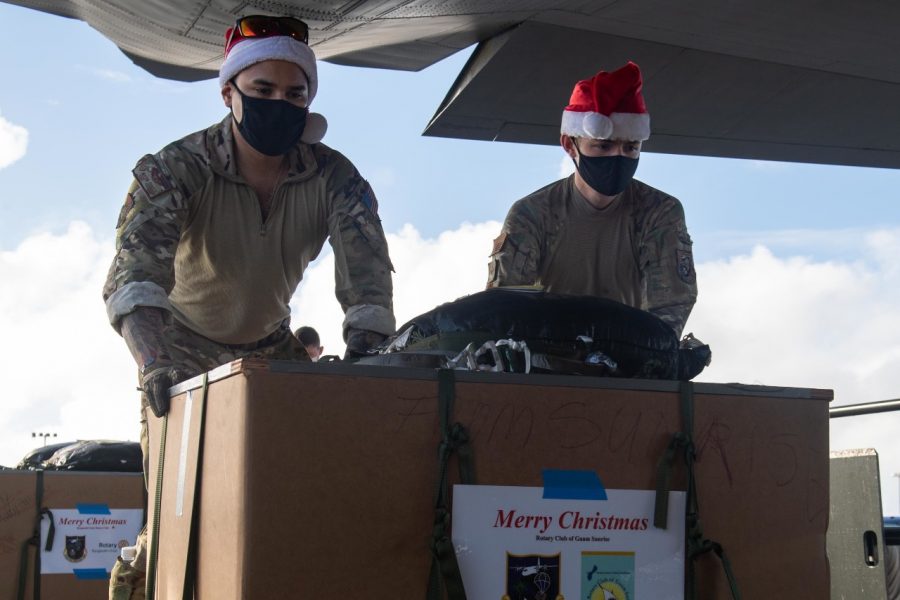U.S. Air Force and Japan Air Self-Defense Forces earlier this month flew the 69th annual holiday tradition—Operation Christmas Drop—airdropping bundles of aid and toys to Palau despite COVID-19 restrictions.
Aircraft dropped 64 bundles to the 500-island archipelago of Palau from Dec. 6-10, providing aid to people on the islands, while also providing airdrop training for C-130 crews, according to a Dec. 17 release.
“Operation Christmas Drop is one of those exercises, it’s one of those missions, that you don’t forget,” said Maj. Joseph Spitz, Operation Christmas Drop mission commander, in a video release. “It’s got a special place in everyone’s heart who accomplishes it. It’s something you can’t duplicate in any other sense.”
For the 2020 iteration, amid the COVID-19 pandemic, organizers and aircrews took multiple precautions. All personnel from Yokota Air Base, Japan, had a 14-day restriction of movement period at home before, then had to test negative for COVID-19 before deploying to Andersen Air Force Base, Guam, for the operation. Donations were held for at least 24 hours, before participants, donning masks and gloves, packed them.
The donations were then bundled for the airdrops, disinfected, and placed in a sanitary location for at least 72 hours, according to the release.
“There were a lot of measures we took to make sure that what we did was in line with the DOD [Defense Department] and the CDC [Centers for Disease Control and Prevention] guidelines,” Spitz said in the release. “This allowed us to mitigate the risk of spread and transmission of COVID-19 to the islanders of Palau.”
C-130s flew to the airdrop locations, flying low and dropping the bundles via parachute to waiting crews on the ground. The low-level airdrop training is something aircrews from Yokota cannot get at their home location.
“When you fly over, and when you drop aid to them, and they wave to us from the ground, it’s something that you can’t recreate and it’s a very rewarding experience,” Spitz said.
